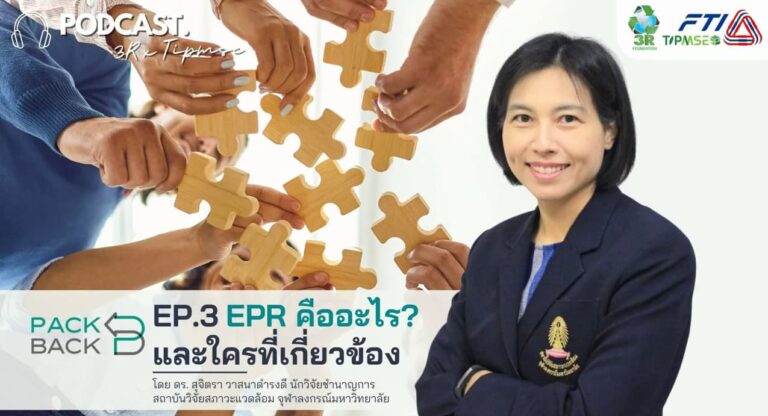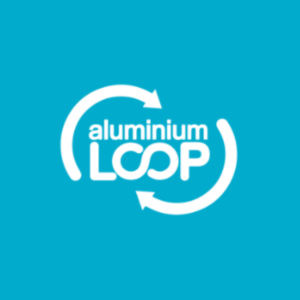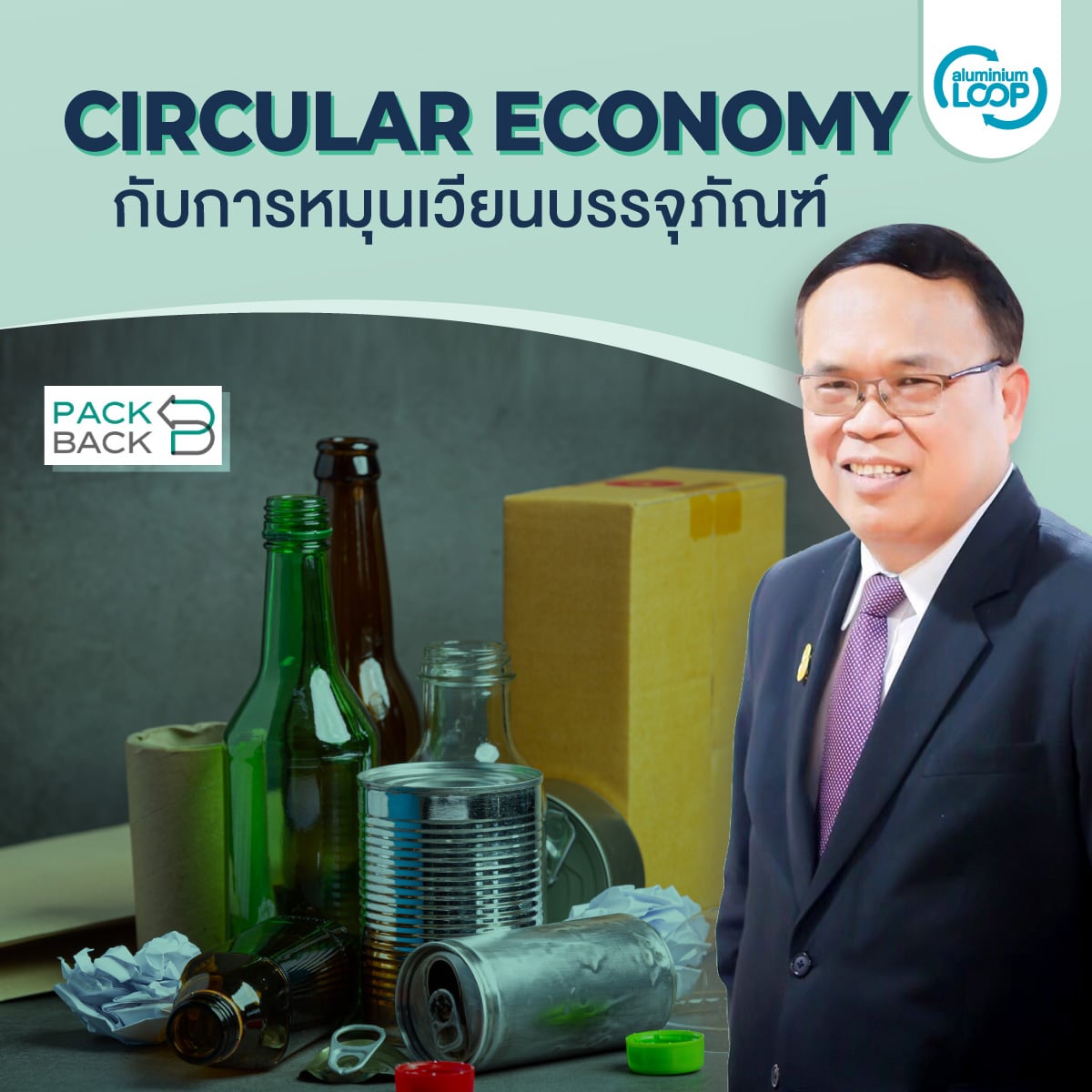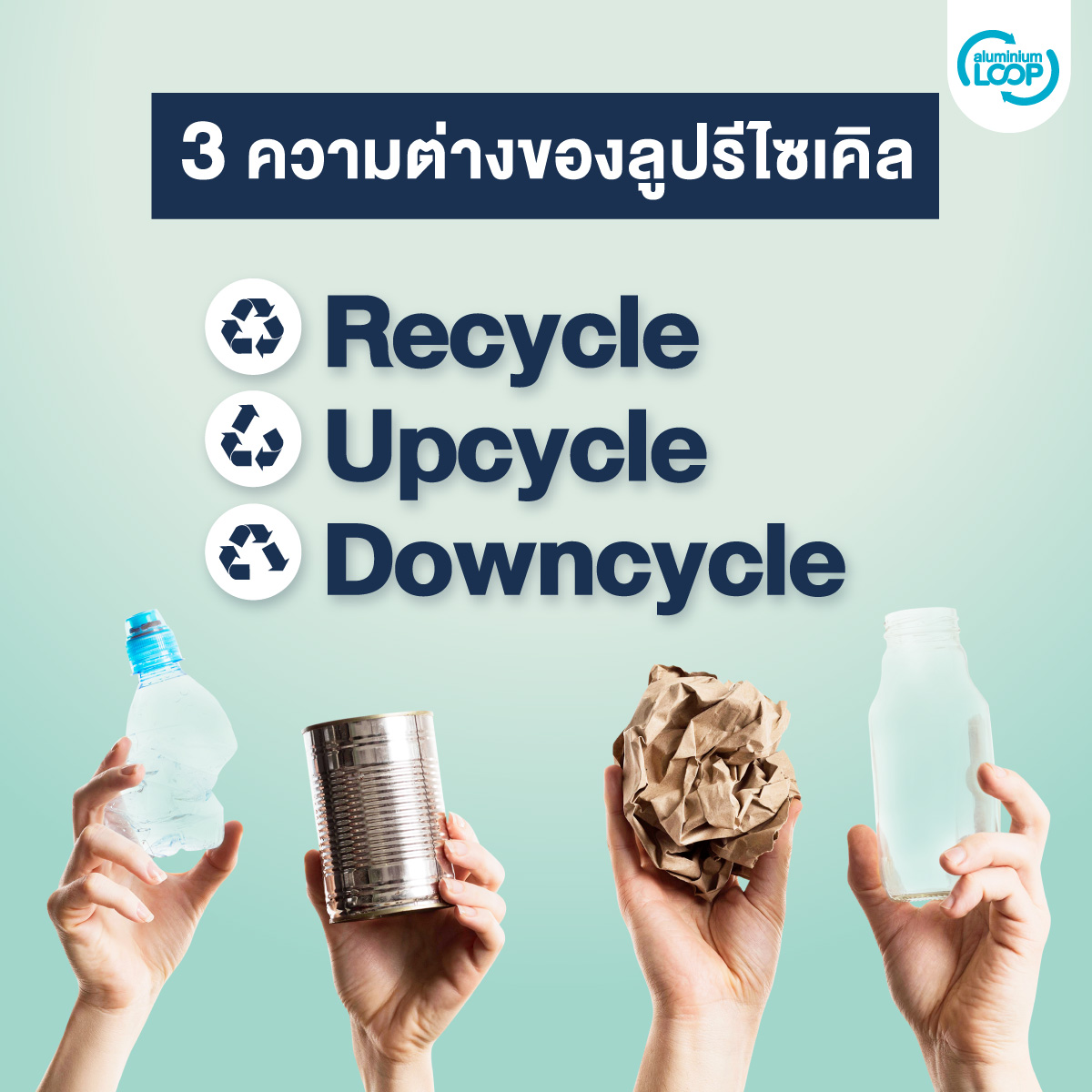
What are prosthetic legs made of?
“Prosthetic legs” are devices that assist people with disabilities in resuming their daily lives. What are prosthetic legs made of? They aren’t just composed of can pull rings anymore.
Waste might be out of sight and out of mind once we throw it away, but if we don’t handle it properly, the consequences can haunt us endlessly. However, with the right approach, the same waste could be endlessly beneficial. What can drive good waste management? Enter ” What is EPR ” This concept holds the key to a circular economy!
Today, Aluminium Loop will delve into the topic of waste through the perspective of Dr. Sujitra Vassanadumrongdee, a researcher from the Environmental Research Institute at Chulalongkorn University. She will connect the concept of EPR (Extended Producer Responsibility), which extends the producer’s responsibility throughout the entire life cycle of packaging, to waste management.
In this article, you’ll learn about applying the EPR system in Thailand. Is there a model country we can look to? How can we prepare and adapt the EPR system for Thailand? Which sectors are involved and play a crucial role? Most importantly, how is EPR related to waste management? Let’s find the answers together.

For Thailand, waste management is still a significant and unresolved issue. However, if we look at a developed country like Japan, we see effective waste management systems that have become a social norm. To achieve this in Thailand, we need to develop systems to discipline Thai people in waste management. One interesting tool that can be applied is EPR (Extended Producer Responsibility). From what we have studied about EPR in abroad,, for it to work effectively and successfully, it needs to be legislated so that every sector can have a role and responsibility. The law defines and divides the roles of stakeholders rom raw material producers to product manufacturers, distributors, consumers, local government organizations, and recyclers. It helps organize the entire system.However, in Thailand, passing such laws could be very challenging and take more than five years. Therefore, in the initial stages, it should be voluntary, showing the private sector’s environmental responsibility, similar to CSR (Corporate Social Responsibility). We just need to shift towards a collective EPR system across the value chain.
Previously, local government organizations were legally responsible for waste collection, but it was just a proper disposal. While the EPR system spreads responsibilities to other sectors to help local government organizations, considering the diverse types of waste, including hazardous, electronic, and infectious waste. Local government organizations might struggle to manage it all, so EPR steps in to share the load and shape new laws.
However, the EPR does not have a one-size-fits-all system for each country, but the important thing is the division of roles and responsibilities among different sectors. When the law states that producers must take responsibility, it generally targets Fillers who package products, making them primarily responsible. But the law allows producers to form groups and contribute to having a third party, called Producer Responsibility Organization (PRO) act on their behalf of the producers, taking on added legal responsibilities like managing product or packaging waste, coordinating with malls, distributors, local authorities, consumers, and recyclers to create take-back systems or drop-off points, usually set up in stores or malls. The local authority then organizes waste separation at the consumer’s home, with consumers responsible for returning cleaned used packaging into the system.
The challenge is creating motivation for consumers to return packaging.
In Thailand, we might need to follow the approach of developing countries, which all have an Informal Sector, which are informal waste sector and waste aggregator, bringing them into the EPR system as well. This inclusion acts as a support system for waste collection without leaving the informal sector behind, offering incentives in exchange for transparent reporting on the collected waste. For developing countries, this approach also allows producers to manage systems themselves due to less robust government systems, but the state’s role is to prevent free riders, those who don’t pay the fee but get benefits. Another important role of the government is to set challenging targets for collection. If producers are given too much freedom, they may comply with the law but not necessarily strive for improvements. Therefore, the government should set progressive targets, starting with minimum collection goals and gradually increasing them as the system matures.
Producer responsibilities are divided according to market share: producers pay fees based on the number of packaging units they produce and sell in the market. Those with a higher market share pay more per unit. For example, in Europe, the fees for packaging are generally very low, often less than 1%. To reduce these fees, a key point is to create an economy of scale, where all producers, small, medium, and large, can share costs, reducing the overall cost per company. But for very small entities, it’s necessary to discuss on what size should be exempted.

To prepare for the implementation of the EPR system in Thailand, initially, everyone should understand what EPR is. The EPR system involves every player in the value chain, not just producers, despite the name. Therefore, all sectors should thoroughly understand the EPR. One very important player is the local government organization, traditionally in charge of waste collection, who needs to understand this system too. They must discuss with the private sector how to adjust roles and responsibilities. According to discussions with local government organizations, they are willing to let the private sector participate due to the extensive environmental issues needing attention. Another critical issue is educating children and youth by integrating it into their learning and encouraging activities such as waste banks, teaching kids to separate waste, and understanding the consequences of inaction. This kind of cultivation is sustainable in the long run and motivates actions at home, using children as a medium for waste separation.
As for Thai consumers, they also need to change their waste disposal behavior to become more disciplined.The primary consideration is waste separation, which could be made easier by encouraging producers to manufacture colored waste bags because black waste bags are an obstacle to waste separation. Making the system convenient for returning packaging waste is crucial. If it can be returned right at home, all the better. Another approach is to use financial incentives, setting different prices for waste based on cleanliness or separation quality, encouraging consumers to separate their waste more meticulously and cleanly, and non-monetary incentives such as trading recyclables for consumer goods, like recycled waste market, where informal waste sector and waste aggregator meet consumers, with producers providing additional incentives for exchanging items for packaging that cannot be recycled.
A key strength Thailand has in preparing for the EPR system is the high level of environmental responsibility awareness among Thai businesses. A clear example is shopping malls willingly sacrificing valuable space for drop-off points, which are increasingly common today. We also have an informal waste sector already familiar with recycling and packaging waste separation. We just need to enhance their system to be more structured.
In summary, EPR is a crucial system in packaging waste management, but we need to add other measures too. We should encourage both producers and consumers to produce and consume more eco-friendly products. If we adopt the circular economy concept, there should be a master law promoting the circular economy, followed by EPR laws to manage various types of waste. And there should be legislation that encourages local management of food waste because food is also the cause of contaminated packaging.
Lastly, we’d like to remind consumers to start with small behavior changes that can benefit the environment, like washing and separating packaging waste at home. Habits that have changed can greatly help the planet. You can also support eco-friendly products, which will motivate other producers to produce environmentally friendly products as well, and join the push when new environmentally beneficial laws are proposed. Because what society gets back is the conservation of natural resources for future generations.
Listen to the full podcast: what is EPR and who’s involved? at https://www.youtube.com/watch?v=_fzcj_lI8Mw&t=1038s


“Prosthetic legs” are devices that assist people with disabilities in resuming their daily lives. What are prosthetic legs made of? They aren’t just composed of can pull rings anymore.

How important is the Circular Economy to Thailand? How is it being driven forward, and what other related issues are there? Let’s find the answers.

Recycle, Upcycle, and Downcycle – how do these 3 processes differ? Let’s learn together to manage used materials correctly and appreciate their value.